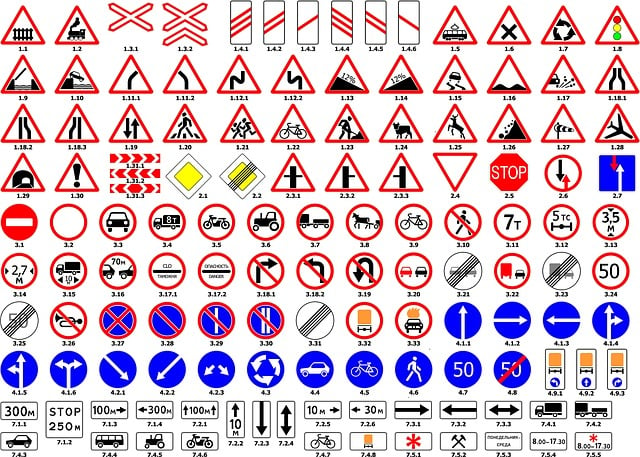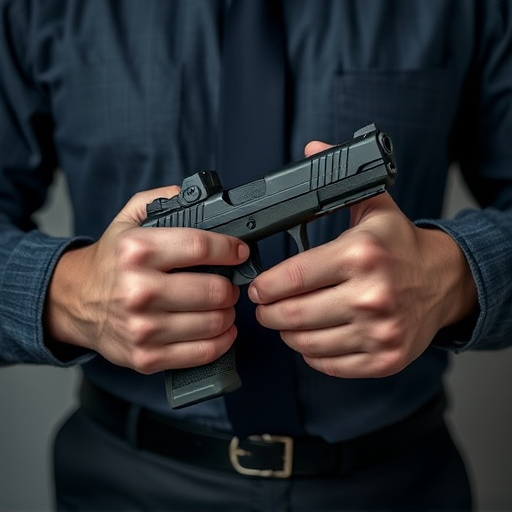Self-defense product laws vary significantly worldwide, with key terms like self-defense, justifiable use, and reasonable force defined legally. These laws consider weapon type, purpose, possession rules, deployment circumstances, and public safety. Regulations differ widely for products like firearms, pepper spray, tasers, and personal alarms. Understanding these legal aspects is crucial for individuals seeking to protect themselves while adhering to local defense product laws and regulations. Staying informed ensures compliance, avoids legal pitfalls, and empowers individuals to make responsible self-defense decisions.
In today’s world, many individuals are turning to self-defense products as a means of protecting themselves. However, navigating the legalities surrounding these tools can be complex and confusing. This article delves into the intricate web of self-defense product laws and defense gear regulations, providing an in-depth overview of legal definitions, jurisdiction variations, permitted gear, restrictions, and crucial legal considerations for their use. Understanding these aspects is essential to ensuring your rights and responsibilities when carrying defense tools.
- Self-Defense Product Laws: An Overview of Legal Definitions
- Understanding the Jurisdiction: Where Laws Vary
- Permitted Defense Gear: What You Can Legally Carry
- Restrictions and Regulations: Limits on Weaponry and Force
- Legal Considerations for Using Self-Defense Tools
- Navigating Law Enforcement Scrutiny: Your Rights and Responsibilities
Self-Defense Product Laws: An Overview of Legal Definitions

Self-defense product laws vary significantly across jurisdictions, reflecting complex legal considerations surrounding personal safety and security. Understanding these laws is crucial for individuals looking to protect themselves with defense gear. Key terms like self-defense, justifiable use, and reasonable force are defined legally, determining the boundaries of what constitutes lawful self-defense. These definitions play a pivotal role in shaping the legalities of defense gear, dictating which products are regulated and under what circumstances their use is permissible.
The legal aspects of carrying defense tools encompass a range of factors including the type of weapon or device, its intended purpose, and the specific rules governing its possession and deployment. For instance, some regions permit the carrying of concealed firearms for self-defense while others strictly regulate them. Similarly, laws around less lethal options like pepper spray, tasers, or personal alarms vary widely, with restrictions on age limits, quantities allowed, and public spaces where they can be carried. Defense product laws and regulations are designed to balance individual rights to self-defense with public safety, ensuring that the use of such products is both proportionate and legal.
Understanding the Jurisdiction: Where Laws Vary

The legalities surrounding self-defense products vary significantly from one jurisdiction to another. What is considered legal in one country or state may be restricted or outright prohibited in another. This variability makes it crucial for individuals looking to purchase and carry self-defense tools to understand the specific laws in their region. Self-defense product laws are designed to balance individual rights with public safety, but these regulations can be complex and often counterintuitive.
Knowing where and how these laws apply is essential for responsible self-defense. For instance, some areas may allow certain types of self-defense gear like pepper spray or stun guns while restricting the use of knives or firearms. Others might have strict regulations on the carrying of any weapon, even those designed for personal safety. Understanding these defense product laws and regulations in advance can help ensure compliance and avoid legal consequences should you find yourself in a situation where self-defense is necessary.
Permitted Defense Gear: What You Can Legally Carry

When it comes to self-defense gear, understanding what is permitted under the law is crucial before making a purchase or carrying any device for protection. The legalities surrounding defense gear vary from region to region, with each jurisdiction having its own set of rules and regulations. It’s essential to know these laws to avoid any potential consequences and ensure your safety.
Under self-defense product laws, several factors determine what you can legally carry as a means of protection. These include the type of weapon or tool, its size and capacity, and the specific circumstances under which it may be used. Common defense gear like pepper spray, stun guns, and personal alarms are generally permitted, but their usage is subject to local regulations. Some areas have restrictions on the strength or voltage of stun devices, while others might require registration or a permit for carrying certain types of self-defense weapons. Staying informed about these legal considerations ensures you remain within the boundaries of the law while protecting yourself.
Restrictions and Regulations: Limits on Weaponry and Force

When it comes to self-defense products, understanding the legalities and restrictions is paramount for anyone looking to protect themselves or their loved ones. Each jurisdiction has its own set of laws and regulations governing the type, possession, and use of self-defense tools, ranging from pepper spray and stun guns to more formidable weaponry. These laws can vary widely based on location, with some regions imposing stringent restrictions while others have relatively relaxed policies. For instance, certain cities or states may ban specific types of self-defense weapons altogether, while allowing others under strict conditions.
Knowing the legal limits on weaponry and force is crucial for responsible self-defense preparation. Carrying a self-defense product comes with legal considerations that can impact how and when it can be used. It’s essential to familiarize yourself with local, state, or national laws regarding defense gear to ensure compliance and avoid potential consequences. Staying informed about these regulations allows individuals to make informed decisions regarding their safety while adhering to the legal framework surrounding self-defense products.
Legal Considerations for Using Self-Defense Tools

When considering the use of self-defense tools and gear, it’s crucial to understand the legal considerations that come into play. The legality of these products varies significantly from one jurisdiction to another, so it’s essential to familiarize yourself with the specific laws and regulations in your area before making a purchase or carrying any defensive equipment. Self-defense product laws are designed to balance individual safety with public safety, ensuring that citizens can protect themselves while adhering to restrictions aimed at preventing misuse.
Understanding defense product regulations is key to ensuring compliance and avoiding legal repercussions. This includes knowing what types of tools are permissible, the circumstances under which they can be used, and any restrictions on carrying or storing them. For instance, some regions may permit only certain types of self-defense products, like pepper spray or stun guns, while others might have strict limitations on the amount or strength of these devices. Additionally, there may be requirements for obtaining permits or licenses for specific defense tools, further emphasizing the need for individuals to stay informed about their rights and responsibilities under the law.
Navigating Law Enforcement Scrutiny: Your Rights and Responsibilities

Navigating Law Enforcement Scrutiny: Your Rights and Responsibilities
When it comes to self-defense products and gear, understanding the legalities involved is paramount for responsible citizens looking to protect themselves and their loved ones. Self-defense product laws vary widely across jurisdictions, encompassing everything from the types of weapons allowed to the circumstances under which they can be carried. It’s crucial to stay informed about these regulations to avoid legal repercussions and ensure your rights are protected.
Knowing your responsibilities is just as important as understanding your rights. This includes adhering to local, state, and federal laws regarding weapon possession, use, and storage. Law enforcement agencies rigorously scrutinize self-defense gear due to concerns related to public safety and potential misuse. Therefore, it’s essential to educate yourself thoroughly, consult legal experts if needed, and carry only the necessary tools for legitimate self-defense purposes.






